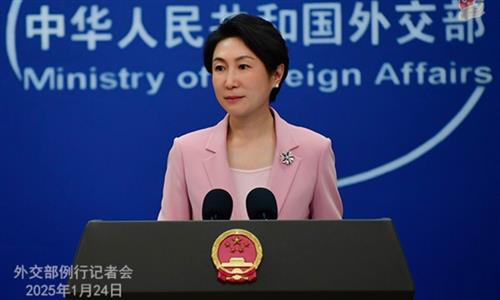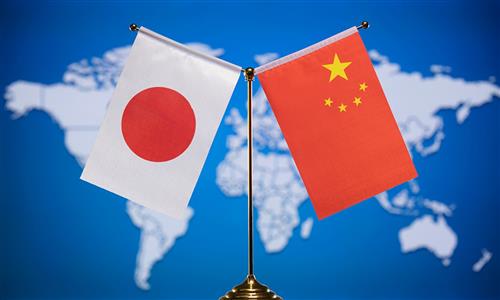At the request of the Japanese side, China and Japan held a new round of technical exchanges in Beijing on May 28 regarding the safety of Japanese aquatic products, achieving substantive progress, said China's General Administration of Customs (GAC) in a press release on Friday.
According to GAC, the two sides have conducted multiple rounds of technical exchanges since the beginning of this year.
Meanwhile, the Chinese side has not provided further details of the substantive progress.
According to Japanese news outlet NHK, Japanese Chief Cabinet Secretary Hayashi Yoshimasa told a Cabinet meeting on Friday that Japan and China have reached an agreement on the technical requirements for resuming seafood exports to China. Hayashi said the exports will resume as soon as procedures are completed for re-registering export-related facilities.
China's import ban on beef, as well as food products from 10 Japanese prefectures including Fukushima, Miyagi and Tokyo, will still be in place, reported NHK. Hayashi asked the relevant Cabinet ministers to continue making efforts so that China may lift the ban.
Citing sources, the Kyodo News reported that it may take several months for shipments of Japanese seafood to China to resume, as the registration process must be completed and the products must pass radiation checks.
On August 24, 2023, China banned imports of all aquatic products from Japan after Japan, disregarding serious concerns from China and the broader international community, began releasing nuclear-contaminated wastewater from the crippled Fukushima Daiichi nuclear power plant into the sea.
During a press briefing in January this year, Chinese Foreign Ministry spokesperson Mao Ning said that Chinese research institutions had completed the tests and analyses of China's first independent sampling of the Fukushima nuclear-contaminated water. No abnormality were found in the activity concentration of tritium, caesium-137 and strontium-90.
The spokesperson reaffirmed China's firm opposition to Japan's discharge of nuclear-contaminated water into the sea, adding that in the absence of a binding international mechanism to halt the release, independent sampling by stakeholder countries on a continuous basis as a method of monitoring is an effective way to manage associated risks that come with the discharge.
The resumption of Japanese aquatic products depends on results from a series of data including those from China's continuous independent sampling and monitoring and whether Japan will take concrete measures to ensure the quality and safety of exported aquatic products to China, Mao said.
Lü Chao, director of the Institute of US and East Asian Studies under Liaoning University, told the Global Times on Friday that the most critical issue in China-Japan aquatic product trade is not merely economic or bilateral relations, but the safety of the aquatic products themselves, which directly affects Chinese public health.
He also noted the difference in narratives between the two countries, with Japan adopting a more specific and optimistic tone that reflects its urgency to resume seafood exports. However, as no final or comprehensive progress has been jointly announced, Japan's optimism seems primarily aimed at reassuring its domestic seafood industry.
While China and Japan may be moving toward easing tensions, lifting the import ban on seafood will depend on Japan's commitment to food safety measures that adequately address China's concerns, Lü said.
He added that Japan should proactively engage with China, ensure transparent and timely communication regarding seafood inspections, and meet standards acceptable to the Chinese side.
According to GAC, the two sides have conducted multiple rounds of technical exchanges since the beginning of this year.
Meanwhile, the Chinese side has not provided further details of the substantive progress.
According to Japanese news outlet NHK, Japanese Chief Cabinet Secretary Hayashi Yoshimasa told a Cabinet meeting on Friday that Japan and China have reached an agreement on the technical requirements for resuming seafood exports to China. Hayashi said the exports will resume as soon as procedures are completed for re-registering export-related facilities.
China's import ban on beef, as well as food products from 10 Japanese prefectures including Fukushima, Miyagi and Tokyo, will still be in place, reported NHK. Hayashi asked the relevant Cabinet ministers to continue making efforts so that China may lift the ban.
Citing sources, the Kyodo News reported that it may take several months for shipments of Japanese seafood to China to resume, as the registration process must be completed and the products must pass radiation checks.
On August 24, 2023, China banned imports of all aquatic products from Japan after Japan, disregarding serious concerns from China and the broader international community, began releasing nuclear-contaminated wastewater from the crippled Fukushima Daiichi nuclear power plant into the sea.
During a press briefing in January this year, Chinese Foreign Ministry spokesperson Mao Ning said that Chinese research institutions had completed the tests and analyses of China's first independent sampling of the Fukushima nuclear-contaminated water. No abnormality were found in the activity concentration of tritium, caesium-137 and strontium-90.
The spokesperson reaffirmed China's firm opposition to Japan's discharge of nuclear-contaminated water into the sea, adding that in the absence of a binding international mechanism to halt the release, independent sampling by stakeholder countries on a continuous basis as a method of monitoring is an effective way to manage associated risks that come with the discharge.
The resumption of Japanese aquatic products depends on results from a series of data including those from China's continuous independent sampling and monitoring and whether Japan will take concrete measures to ensure the quality and safety of exported aquatic products to China, Mao said.
Lü Chao, director of the Institute of US and East Asian Studies under Liaoning University, told the Global Times on Friday that the most critical issue in China-Japan aquatic product trade is not merely economic or bilateral relations, but the safety of the aquatic products themselves, which directly affects Chinese public health.
He also noted the difference in narratives between the two countries, with Japan adopting a more specific and optimistic tone that reflects its urgency to resume seafood exports. However, as no final or comprehensive progress has been jointly announced, Japan's optimism seems primarily aimed at reassuring its domestic seafood industry.
While China and Japan may be moving toward easing tensions, lifting the import ban on seafood will depend on Japan's commitment to food safety measures that adequately address China's concerns, Lü said.
He added that Japan should proactively engage with China, ensure transparent and timely communication regarding seafood inspections, and meet standards acceptable to the Chinese side.




